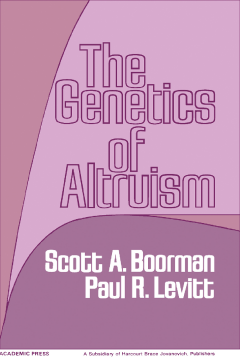
Additional Information
Book Details
Abstract
The Genetics of Altruism covers the primary findings on social evolution, social trait, and altruism from a population genetics standpoint to establish a system of genetic boxes. It presents an evolutionary question with two faces: Why are there so many social species? Why, in all the diversity of the animal kingdom, are the social species so few?
To address the evolutionary question, this book focuses on recognition of the fact that on an evolutionary time, scale genetics must underlie all changes in the capacity for social structure and other aspects of organic evolution. It presents comparative analyses framed in mathematical terms; mathematical concepts as a means of getting outside human, perhaps more generally primate and carnivore; frames of reference; and alternative network combinatorics as a natural basis for comparing social structures that are phylogenetically remote. It also discusses the comparative biology of social behavior on a purely descriptive basis through the social and evolutionary structures emergent. The book concludes by discussing major evolutionary pathways, various kinds of preadaptedness for sociality, and the use of cascade principle to suggest ways in which human evolution may have been a special case.
This book is a valuable resource for biologists, social scientists, researchers, students, and all those who want to broaden their knowledge in the field of social behavior and altruism.
